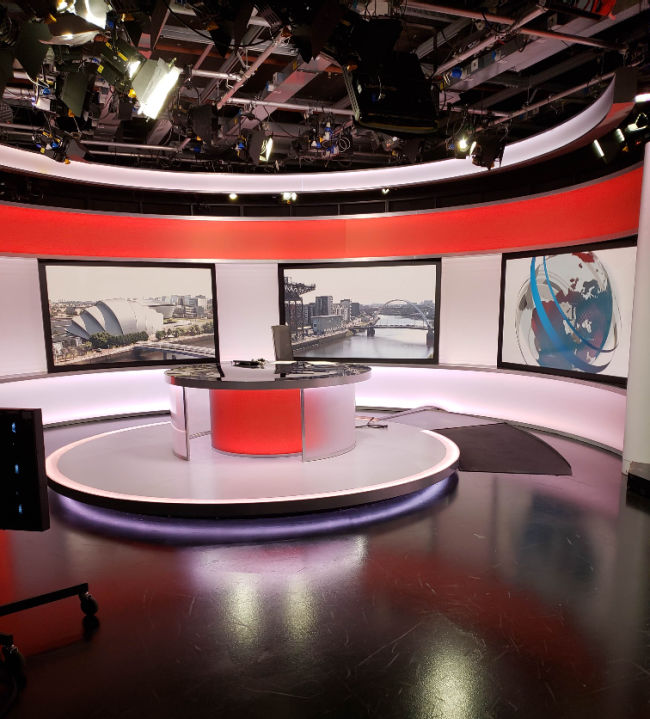I suppose I should create monthly themes for these posts and follow them to the tee so that you know exactly what we’re going to cover each week. However, it feels more natural and timely for me to respond to what I encounter around me as I delve into the world of media each and every day, so for now, I will continue doing that.
This week, I am struck by the media interviews I have seen lately — the good, the bad, and the out-and-out ugly. In fact, part of the process while media training clients is that I have them watch a variety of interviews to get a sense of how a good one is put together, and how to discern exactly WHY a bad interview is bad. (Sometimes it’s hard to put your finger on exactly why it’s bad–you just know it is.) There is great learning in this process.
Here’s an interview that goes back a few years, but I just ran across it this week. It’s classic and it’s only one and a half minutes long, so it’s worth the time to watch it. First question: Is this a good interview or a bad interview? Why? Watch here.
If you said “bad” you are right! Oh my goodness; So much is wrong here. First of all, the interviewee should have been prepared. The interview is about volunteering, which is what he does. Why was he not able to clearly, and enthusiastically say what he does as a volunteer. Then he blames the host for surprising him with the question.
Now, I suppose one could say the interviewer was picking on him by putting him on the spot, but was he? The interviewee blamed him not once but twice for asking the question! Unless your reason for doing an interview is to stir up some controversy, don’t do it. You will lose.
What if the interviewee had simply stopped when he first stumbled and said, “haha…I can’t believe I’m not taking this opportunity to tell you every single thing I do and have ever done to volunteer, rather than stumbling all over myself. Let me try that again.”
Wouldn’t that be better than saying to the host, “Thanks for dropping that question on me,” and getting all defensive? Sometimes the best course of action is to admit when you’ve messed up. Extra points if you can do it while laughing at yourself.
Far too many people jump right into doing interviews without learning important skills that will help them avoid blowing the opportunity. Learning “on the job” while you’re doing interviews is another option, but personally, I’d rather make my mistakes when there’s only one other person there than a potentially big audience and an audio file that may float around forever.
Here are a few more interview skills that are worth the time to master
Be prepared: Whatever your expertise is, be prepared for what could be asked of you. The interviewer may ask you a question related to the industry you’re in. Also, be sure you check that day’s news just in case there’s some current event that they might ask you about. It doesn’t reflect very well on you to respond with, “Gee, I hadn’t heard about that.” And remember, the interviewer may ask you a question that really has nothing to do with why you are there for the interview in the first place. How will you respond to that? (There is a good strategy for handling this type of situation.) Be up-to-date on some potential questions you may be asked so that you come off calm, cool, collected, and smart.
Be responsive: If you get any pre-interview questions and requests, make sure you respond to them right away.
Be proactive: You could make some suggestions on what they can ask you about prior to the interview, although you need to carefully word this. Some get touchy if they think you want to determine how the interview is going to go beforehand.
Be savvy: If it’s an in-person meeting (we won’t be in a pandemic forever) ask if it’s OK for you to record the interview as well, and simply use the recording device on your phone. This is helpful for print interviews and recorded ones in case something is edited in such a way as to change its meaning. You want to have something to come back with in case there is a question. (You’re welcome.)
Be smart: Practice doing mock interviews, preferably not with family or a best friend. They love you and they’re going to tell you that you did an amazing job. They’re not going to say that you didn’t tee up the next question, or that you missed mentioning half of your key messages or that you blew question number three. That’s my job. 🙂
Be communicative: Make sure you are able to communicate complex thoughts and ideas simply and clearly so that anyone can understand what you’re saying.
Be professional: Be sure you have key messages that are geared to the needs of the media.
Bottom line
Never “wing it” when it comes to doing interviews, and yet I see it all the time. Here’s the deal about media training. It’s like learning how to drive a car, or ride a bicycle. The techniques for successful media interviews need to be learned.
And remember, those who make it seem smooth and easy have practiced more than anyone.
To your success!
Joanne
P.S. Another classic. My broadcast brothers and sisters are enjoying this one too. Oh, and if you need some media training, well, that’s what I do. Tell me about it.
#mediatraining
#hownottosuckatinterviews
#bookpublicity
#bookmarketing
If you’d like to receive juicy publicity secrets directly on a regular basis, join the Savvy Sunday Community at the bottom of this page.

